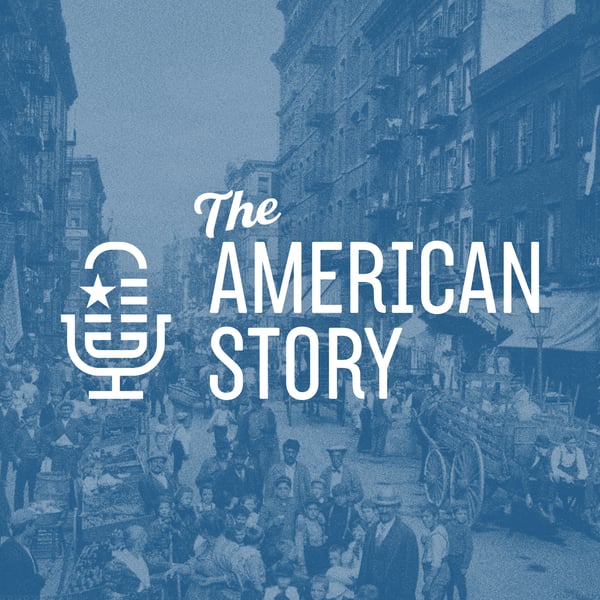Uncle Tom’s Cabin
The American Story
Christopher Flannery
4.6 • 941 Ratings
🗓️ 15 March 2022
⏱️ 7 minutes
🧾️ Download transcript
Summary
Isabella Beecher was outraged like many of her Boston neighbors by the passage of the Fugitive Slave Law 1850. The new law, part of the Compromise of 1850, required citizens in free states to assist in the recovery of fugitive slaves under penalty of stiff fines or imprisonment. Isabella was fully occupied looking after her eleven children, but she knew someone who might be able to do something: her husband’s sister, Harriet Beecher Stowe.
Transcript
Click on a timestamp to play from that location
| 0:00.0 | Welcome to the American Story. Stories about all the things that make America the |
| 0:06.3 | country we know and love. Thank you for subscribing to the American Story |
| 0:11.8 | podcast on your favorite podcast app, |
| 0:14.0 | leading a five-star review on that app, |
| 0:17.0 | and sharing these stories with family, friends, and neighbors. |
| 0:20.0 | Thanks to you, we are reaching more listeners every week. |
| 0:24.6 | This is Chris Flannery with the Claremont Institute. |
| 0:27.8 | I call this one Uncle Tom's Cabin. Isabella Jones Beecher was outraged like many of her Boston neighbors by the passage of the fugitive slave law of September 1850. |
| 0:42.0 | The law was an essential part of the compromise of 1850. The law was an essential part of the compromise of 1850, which aimed to |
| 0:46.6 | keep the country from destroying itself over the issue of slavery. |
| 0:50.3 | Replacing the fugitive slave law of 1793, the new law made it easier for slave owners to file claims on alleged runaway slaves, |
| 0:59.0 | created more federal officials to enforce the law, and denied the fugitive's right to a trial by jury. |
| 1:06.9 | Most infuriating and humiliating to anti-slavery opinion, the law required citizens and free |
| 1:12.1 | states to assist in the recovery of fugitive slaves under penalty of stiff fines or imprisonment. |
| 1:18.0 | This forced these citizens to be active collaborators in the institution of slavery, which could no longer be seen as an abstract |
| 1:25.7 | evil in faraway strange southern slave states. |
| 1:31.8 | Isabella was fully occupied looking after her 11 children and had no public platform from which to do anything about this outrage, but she knew someone who might be able to do something. |
| 1:42.0 | Her husband's sister, Harriet Beecher Stowe, then abiding in Brunswick, Maine. |
| 1:47.5 | Stowe had been writing and publishing articles and tracks and sketches for years. |
| 1:52.3 | Maybe she could write about this. articles and tracks and sketches for years. |
| 1:53.4 | Maybe she could write about this. |
| 1:56.2 | So her sister-in-law wrote her a letter. |
... |
Please login to see the full transcript.
Disclaimer: The podcast and artwork embedded on this page are from Christopher Flannery, and are the property of its owner and not affiliated with or endorsed by Tapesearch.
Generated transcripts are the property of Christopher Flannery and are distributed freely under the Fair Use doctrine. Transcripts generated by Tapesearch are not guaranteed to be accurate.
Copyright © Tapesearch 2025.

